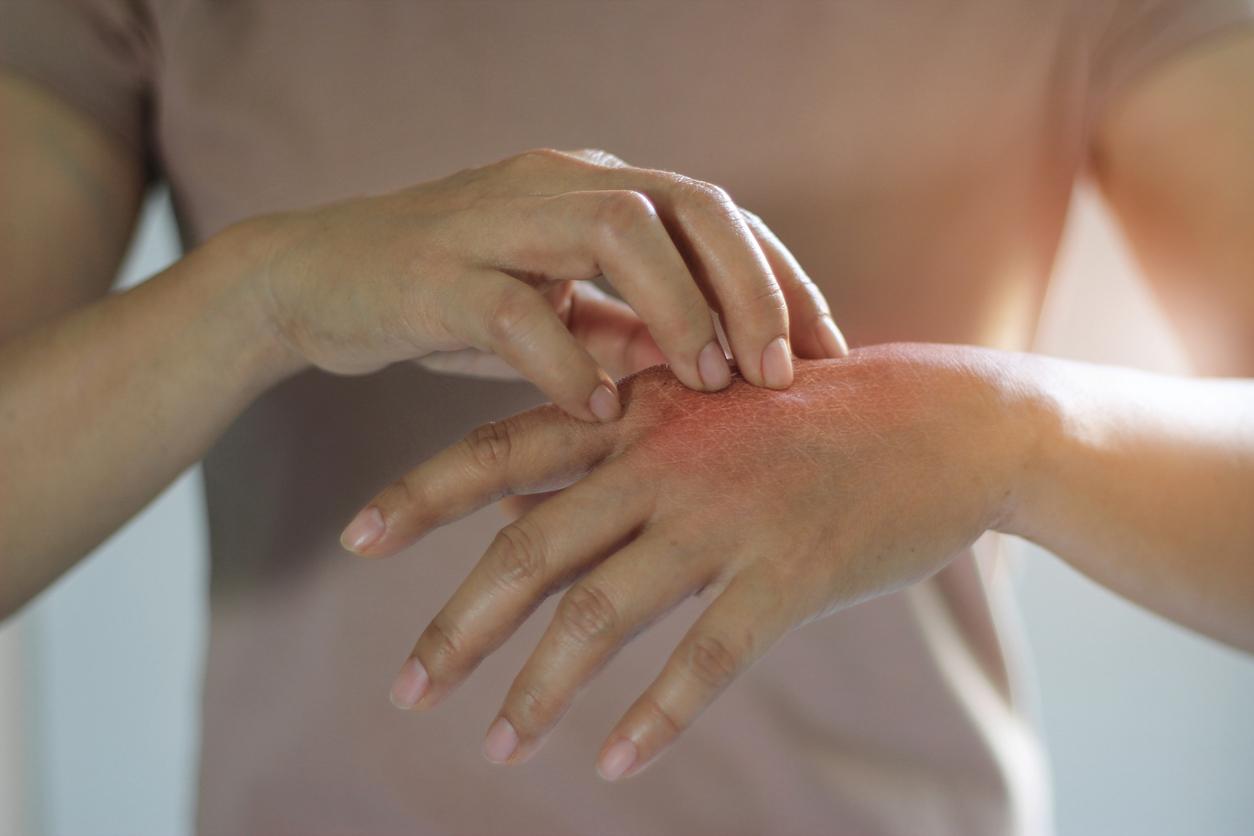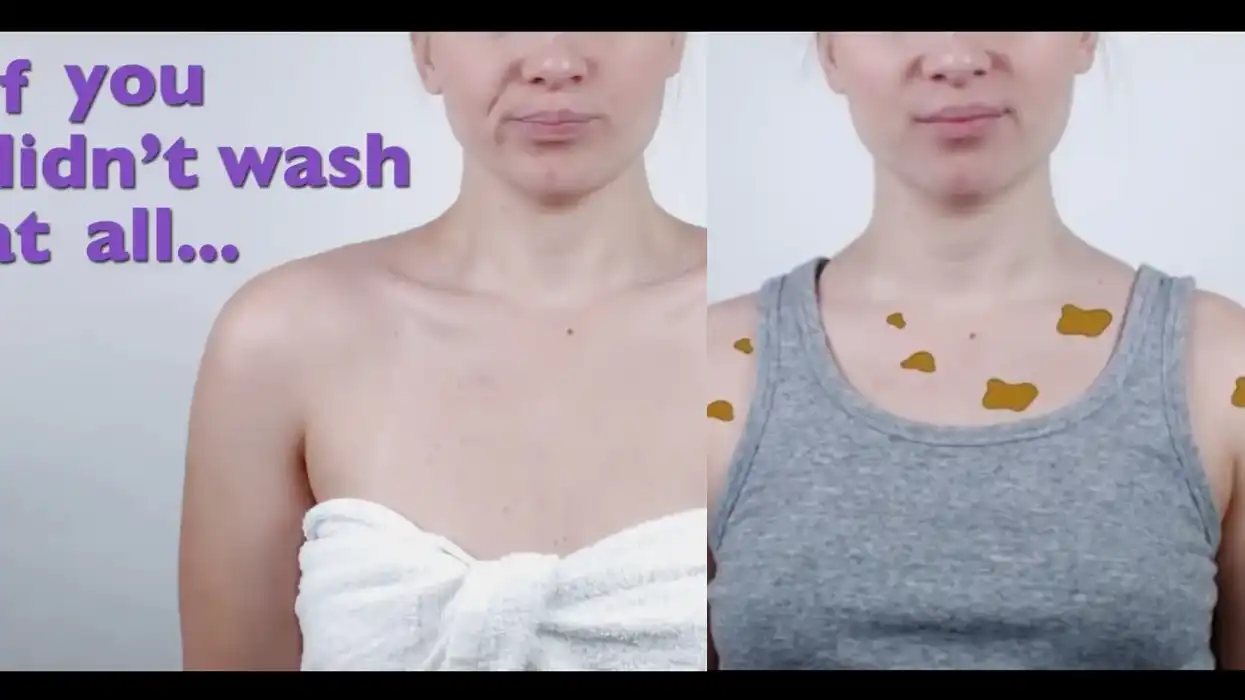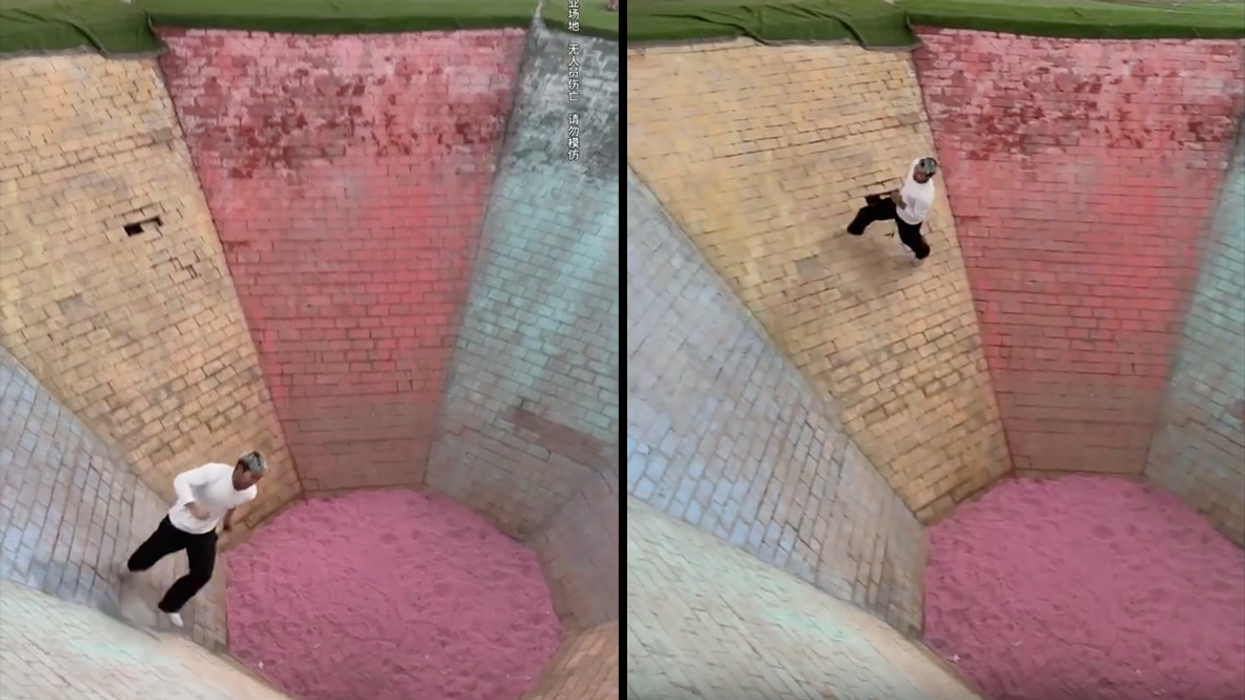No soap, no water, no nothing. If you don't shower regularly, that's your prerogative (though there's no guarantees your friends and family won't have something to say).
But beyond personal preference, there's actually a science behind what happens to your body when you don't routinely bathe.
This popular video delves into some of the physical effects that washing too little (or too often) has on your body.
1. Your skin needs good bacteria
Up to 1,000 species of bacteria live on your skin, along with 80 types of fungus, the video explains. But most of these germs are actually good for us—they work to push out the “bad” bacteria or break down skin secretions to produce natural moisturizers.
Bathing is our second line of defense against some of the nastier bacteria, so if you don’t regularly bathe and then touch your mouth, nose or eyes, you’re exposing yourself to harmful germs that could get you sick.
2. You can get skin infections
 Source: istock
Source: istockIn line with point number one, that balance of “good” and “bad” bacteria on our skin can be upset by not washing enough. If you don’t wash your body, it makes it easier for germs that cause actual skin infections to flourish.
3. Some skin conditions are exacerbated
“If you didn’t wash at all, dirt, sweat, dead skin cells and oil would start to accumulate,” the video explains. Not bathing is also harmful for people who have chronic skin conditions like acne. “Not bathing could make it worse.”
4. You develop crusts of dirt on your skin
Dermatitis neglecta is a skin condition characterized by patches of thick, brown plaques that occur when you don’t bathe for a very long time, according to the National Institute of Health (NIH). They are made up of different things like sweat and bacteria, and form a compact crust of dirt on a localized area of skin. Yikes.
5. You smell
 Source: istock
Source: istockContrary to popular belief, it’s not actually sweat itself that smells, the video explains. Sweat itself is actually odorless. It’s B.O., also known as bromhidrosis, that stinks. It happens when bacteria feed on the proteins and fatty acids in sweat, and then convert them into bad smelling chemicals.
How often should you shower?
Don’t bathe too often, though. You don’t want to strip your body of the natural chemicals it needs to stay healthy. Watch the full video to find out how often dermatologists say you should bathe.
This article originally appeared last year.












 This represents the key to the perfect flow statePhoto by
This represents the key to the perfect flow statePhoto by 






 Representative Image Source: Unsplash | Pawel Czerwinski
Representative Image Source: Unsplash | Pawel Czerwinski 
 Representative Image Source: Pexels | Pixabay
Representative Image Source: Pexels | Pixabay 







